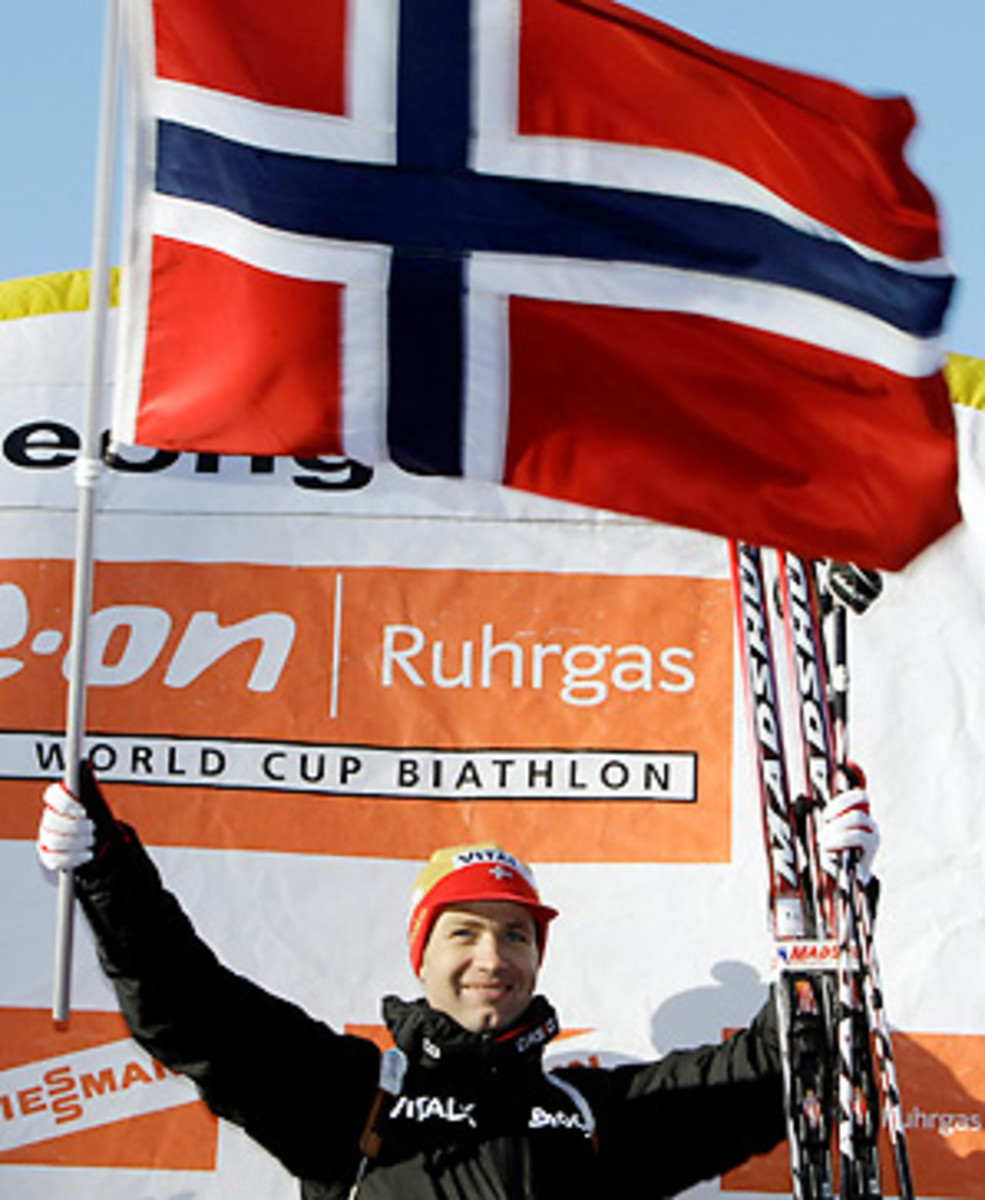
Vancouver biathlon preview
SI.com's writers will preview each event from the 2010 Winter Olympics in Vancouver. Here's Brian Cazeneuve's look ahead to biathlon.
The U.S. has never won an Olympic medal of any color in biathlon, which means it gets virtually no coverage on American TV during the Games. Yet watch the competition on one of the European channels or attend a live competition in a place such as Oberhof, Germany, and you see how exciting and difficult it can be. You're gasping and coughing at the very moment your heart rate needs to be still, so you can pull into the range and still shoot straight.
Norwegian Ole Einar Bj�rndalen is one of the greatest winter athletes in history. He has won nine Olympics medals, including five golds, and an astounding 33 medals (14 golds), at World Championships. He even won a World Cup title without his rifle, taking a cross-country competition in Sweden in 2006. There was an odd example of the respect for Bj�rndalen at the 2009 Worlds in Pyongchang, Korea. When the icon of the sport went the wrong way above a bridge, 15 other skiers went with him, losing time in the process, even though they were supposed to have memorized the correct route of the course. Two seasons ago, Bj�rndalen passed the record of Swedish alpine legend Ingemar Stenmark, who had amassed 86 World Cup wins, the most for any athlete in a ski discipline, until Bj�rndalenpassed him.
Tim Burke is having a breakthrough season, with several podium finishes on the European circuit, but still no victories yet. From his first result of the season, a second-place finish in the 20-kilometer individual race in �stersund, Sweden, Burke has challenged for the prestigious yellow jersey, worn at each race by the World Cup points leader. (The 27-year-old has worn it over two weekends so far.) With a strong team in the Nordic combined, the only other sport in which the U.S. has never won an Olympic medal, Burke is the man entrusted with breaking his team's career medal slump in Vancouver.
Since the women's relay was introduced at the '84 Worlds, either Russians/Soviets or Germans have won 18 of 20 gold medals awarded, often with one vanquishing the other on the final leg. Last year, the Russians won the competition by a minute, shooting a clean round, as the German women missed three times and finished with silver. Of the five races contested, each team won twice. Germany's Andrea Henkel might have won the pursuit had she not been disqualified for inadvertently firing a bullet into a wall before the race when she thought her gun was unloaded.
Shooters can hear the dinks when targets are hit or the deafening silence when targets are missed. Since crowds can usually watch on a monitor, there are accompanying roars and groans after each shot. Shooters not only have to contend with these reactions to their shots, but also with those for the shooters next to them. Skiers who miss shots then ski penalty loops for each of the misses. The U.S. team often has athletes with military backgrounds on its squad. The first known biathlon race in the form we know today was held by the Norwegian military in 1912.
Men10K sprint: Feb. 1412.5K pursuit: Feb. 1620K individual: Feb. 1815K mass start: Feb. 214x7.5K relay: Feb. 26
Women7.5K sprint: Feb. 1310K pursuit: Feb. 1615K individual: Feb. 1812.5K mass start: Feb. 214x6K relay: Feb. 23





